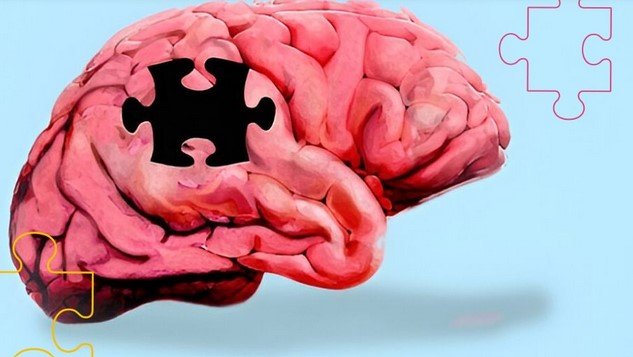Solving puzzles is more than just an enjoyable pastime; it’s also a powerful activity for boosting brain health. Whether you’re working on a jigsaw puzzle, crossword, Sudoku, or logic puzzle, these activities engage your mind in ways that help improve cognitive function. Regularly challenging yourself with puzzles can improve memory, sharpen focus, enhance problem-solving skills, and reduce the risk of cognitive decline. In this post, we will explore the many benefits of solving puzzles and how they can positively impact your brain health.

1. Improves Cognitive Function
One of the most notable benefits of solving puzzles is the improvement of cognitive function. Puzzles require you to engage different parts of your brain, including areas responsible for memory, attention, and problem-solving. By consistently solving puzzles, you are stimulating brain activity and encouraging the development of new neural connections.
This constant mental exercise helps to enhance your brain’s ability to process information, recognize patterns, and make quick decisions. Whether you’re solving a crossword or tackling a Sudoku puzzle, your brain is challenged to work in a way that promotes overall cognitive development, which is essential for mental sharpness.
2. Boosts Memory and Recall
Puzzles have a significant impact on memory. Many puzzles, such as jigsaw puzzles or word searches, require you to remember shapes, patterns, or words, which strengthens your short-term and long-term memory. When solving a puzzle, you are constantly recalling information, which helps enhance your brain’s memory capabilities.
For example, completing a crossword puzzle forces you to recall vocabulary and word associations. Similarly, jigsaw puzzles require you to remember where specific pieces fit within the bigger picture. These regular memory exercises help to improve both your recall ability and your brain’s overall memory capacity.
3. Enhances Problem-Solving Skills
Solving puzzles requires critical thinking and problem-solving skills. Each puzzle presents a challenge that needs to be solved with logic, strategy, and creative thinking. This process helps to strengthen your ability to approach problems in a structured way and think outside the box.
Whether you’re trying to figure out a complicated Sudoku grid or piecing together a jigsaw puzzle, you learn to break down the task into smaller, manageable steps. This exercise of analyzing and resolving challenges can translate into improved problem-solving abilities in other areas of life, such as work or personal decision-making.
4. Reduces the Risk of Cognitive Decline
Engaging in regular brain exercises, such as solving puzzles, can significantly reduce the risk of cognitive decline and diseases like Alzheimer’s. Studies have shown that keeping the brain active with stimulating activities can help preserve memory function and slow down the onset of cognitive disorders. Puzzles keep the mind sharp and are thought to improve neuroplasticity, the brain’s ability to reorganize itself by forming new neural connections.
By challenging the brain with puzzles, you encourage brain health and help protect against the natural decline of cognitive functions that occur with age. It’s a fun and effective way to maintain mental clarity and support long-term brain health.
5. Improves Focus and Concentration
Puzzles require focus and concentration, which helps improve these cognitive skills over time. To successfully complete a puzzle, you need to pay close attention to detail and stay engaged with the task at hand. This concentrated effort strengthens your brain’s ability to focus and blocks out distractions.
Regularly solving puzzles can help improve your ability to concentrate on other tasks, whether you’re at work or studying. It trains your brain to stay alert and attentive for longer periods, which can lead to better overall productivity and mental endurance.
6. Enhances Mood and Reduces Stress
Solving puzzles can also have a positive impact on your mental well-being. Engaging in puzzle-solving helps to stimulate the release of dopamine, a neurotransmitter that promotes feelings of happiness and satisfaction. The sense of accomplishment you feel when you successfully complete a puzzle can elevate your mood and provide a natural mood boost.
Additionally, working on puzzles can be a great way to relax and unwind. It provides a break from everyday stress, helping to calm the mind and reduce anxiety. Whether you’re solving puzzles alone or with others, it’s a great way to engage in a mindful activity that improves mental health.
7. Encourages Social Interaction
While solving puzzles is often seen as a solitary activity, many people enjoy working on puzzles together, which fosters social interaction. Group puzzle-solving can improve teamwork, communication, and collaboration. Whether you’re working on a puzzle with friends or family, the shared experience of solving problems together strengthens bonds and creates a sense of community.
Social interaction has its own cognitive benefits, as engaging in conversation and collaborative problem-solving keeps your brain active. Group puzzle-solving can also be a fun and bonding experience that brings people closer together.
Conclusion
Solving puzzles offers a wide range of benefits for brain health, including improved cognitive function, better memory, and enhanced problem-solving skills. Regular puzzle practice also reduces the risk of cognitive decline, improves focus and concentration, and can even boost mood and reduce stress. Additionally, puzzles help develop visual-spatial skills and foster social interaction. Incorporating puzzle-solving into your daily routine is a fun and effective way to keep your mind sharp, improve mental clarity, and maintain long-term brain health. So, the next time you sit down to solve a puzzle, remember that you’re not just having fun — you’re also taking care of your brain.



